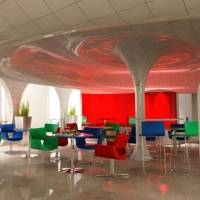January 2, 2015
CIPD claims 2015 should be a ‘rollover year’ for workplace productivity
 The UK labour market will continue to expand at a strong rate in 2015 but there are unresolved issues relating to levels of pay and how best to increase workplace productivity to drive further growth, according to Mark Beatson, chief economist for the Chartered Institute of Personnel and Development (CIPD) in a new report. While the report argues that the ongoing economic recovery and improvements in the labour market are good news for jobseekers and good news for businesses, it also considers it unlikely that we’ll see any real increase in wage growth until 2016. The author also warns that the UK’s steady growth remains vulnerable to developments in Europe and that the UK’s ‘workplace productivity puzzle’ is an urgent issue for policy makers and businesses to address in order to sustain growth.
The UK labour market will continue to expand at a strong rate in 2015 but there are unresolved issues relating to levels of pay and how best to increase workplace productivity to drive further growth, according to Mark Beatson, chief economist for the Chartered Institute of Personnel and Development (CIPD) in a new report. While the report argues that the ongoing economic recovery and improvements in the labour market are good news for jobseekers and good news for businesses, it also considers it unlikely that we’ll see any real increase in wage growth until 2016. The author also warns that the UK’s steady growth remains vulnerable to developments in Europe and that the UK’s ‘workplace productivity puzzle’ is an urgent issue for policy makers and businesses to address in order to sustain growth.


























December 12, 2014
Can the workplace environment change an organisation’s culture?
by Adam Burtt-Jones • Comment, Workplace design
(more…)